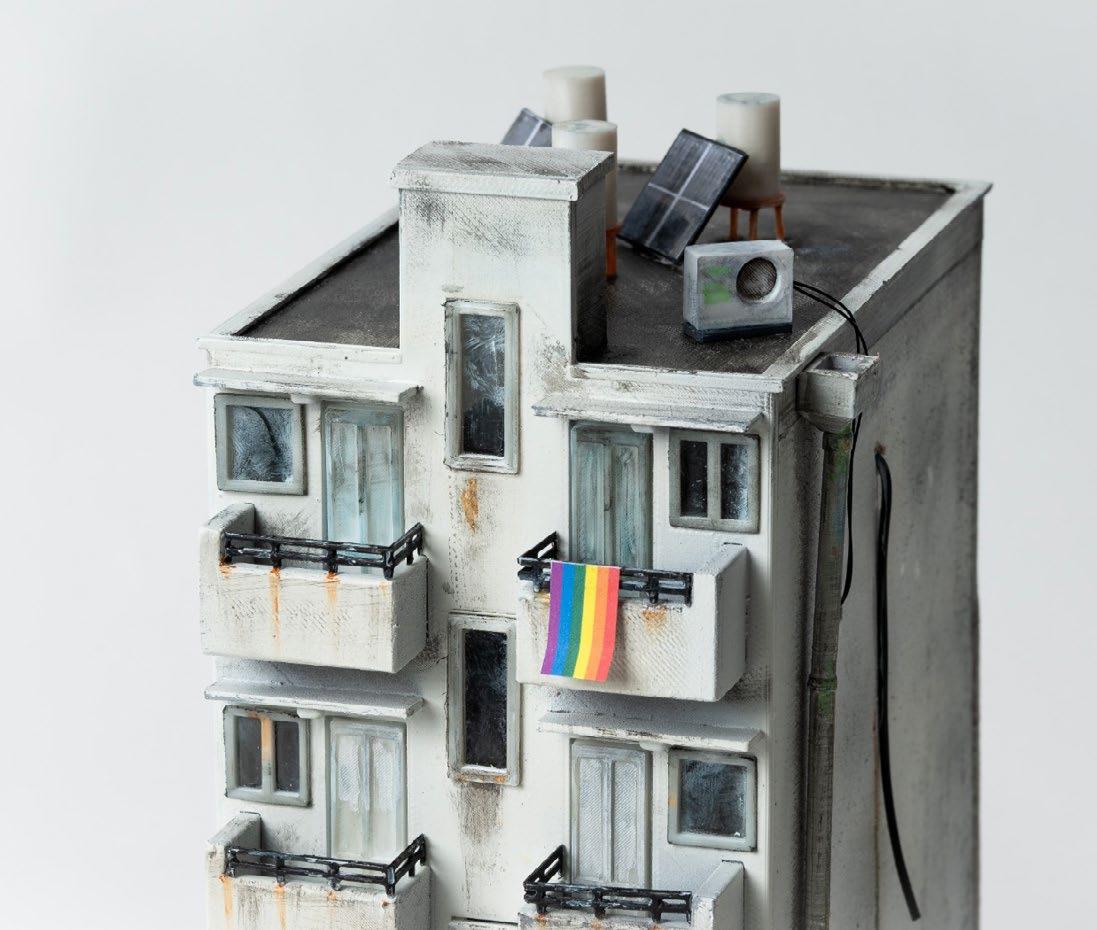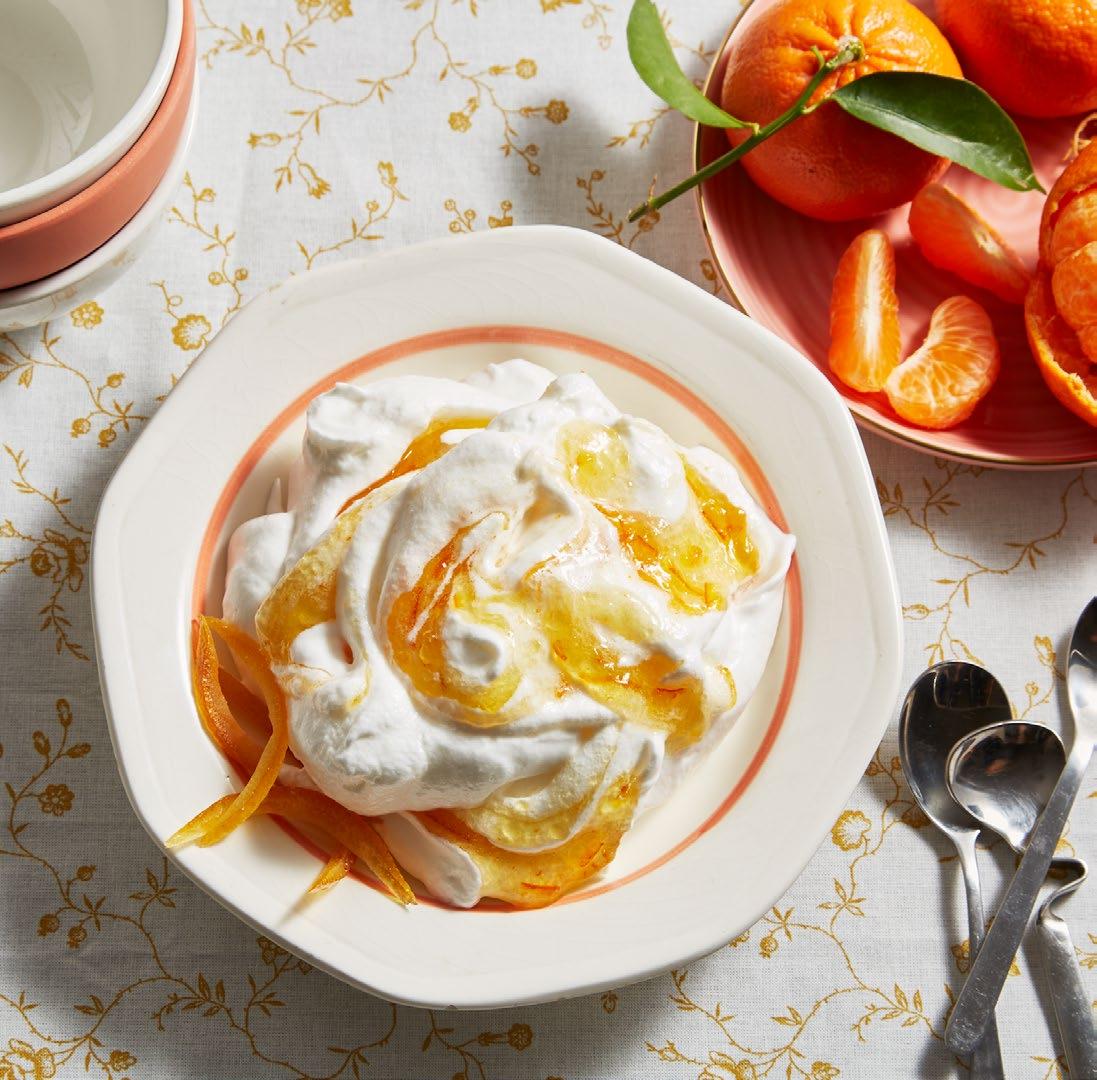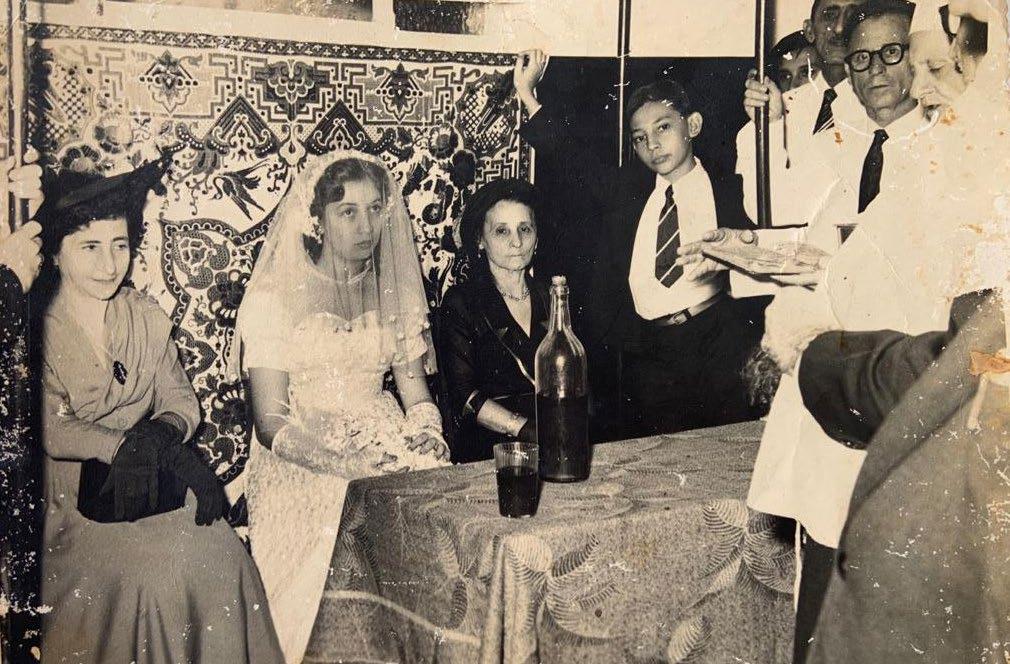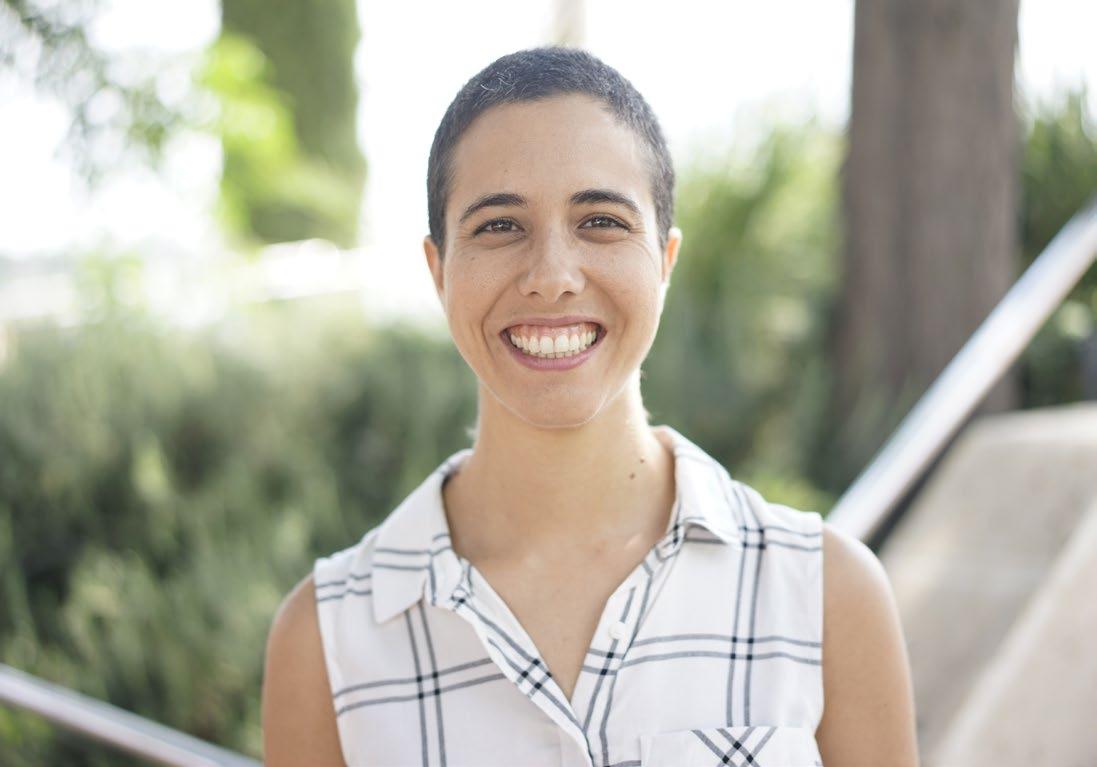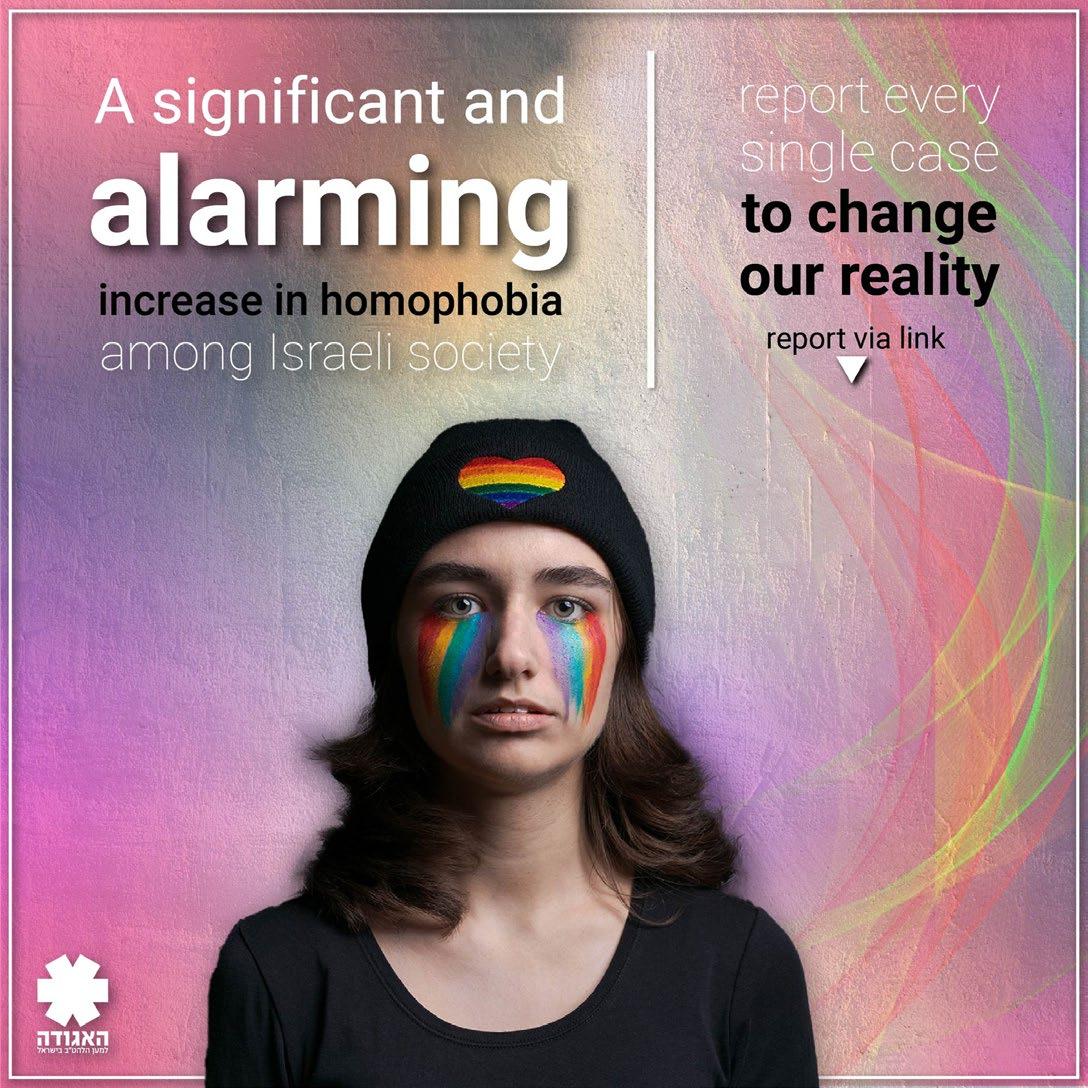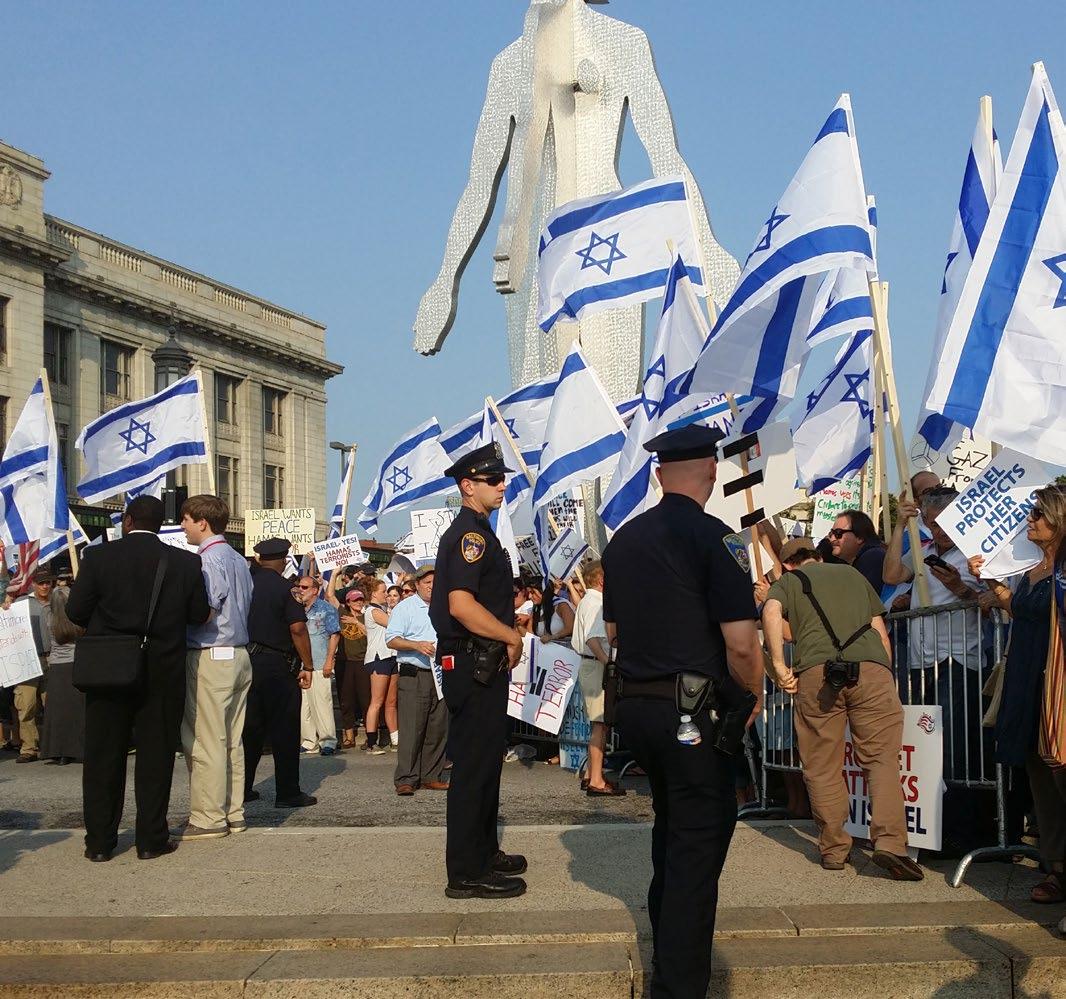
6 minute read
INSPIRATIONAL ISRAELI SAMAH SALAIME
Samah Salaime is a member of Wahat al-Salam Neve Shalom, a social worker, community activist, and feminist. In 2009, following a wave of killings of women in the central cities of Israel, Samah established Na'am—Association for Arab Women in the Center, a nonprofit promoting the status of Arab women in Ramle, Lod, and Jaffa through social and holistic services and solutions. The association acts for girls and women who are victims of violence and oppression in society in general, and in Arab society in particular. Samah was chosen by the Israeli newspaper Yediot Achronot as one of the 10 most influential social activists in Israel. She graduated from Hebrew University with bachelor’s and master’s degrees in social work and is a graduate of the Mandel School for Educational Leadership.
What is your favorite part of the day?
Advertisement
I love the nighttime. I like the late night, after a long day of work, housework, and being with my kids. I start to feel myself, to go over the day that’s ending and ask myself what was good or less good. My mind starts looking forward to the upcoming day and what I can do with it. Those are the hours I can let myself swipe through social media, write a silly post or a serious one on Facebook. And usually it is in the small hours, when I’m alone with my thoughts and feelings, that my weekly article starts taking shape.
If you could meet with any famous figure, living or dead, who would it be?
I would really like to meet Angela Davis, who is now 78. Angela represents for me the utmost values that have guided me in my public, professional, and personal life. She spoke of the intersectional nature of the struggles of women and the black minority long before the world knew about double oppression.
I am a Palestinian, feminist citizen of Israel who sees the complexity Davis speaks about. Today, I understand the connection between gender oppression in a patriarchal society and the militaristic oppression of Palestinians living under Israeli occupation.
I must seek my partners-in-struggle from among the Jews, my fellows and friends who believe in democracy and equality and who desire peace. Angela, to me, is a model of holistic feminist activism who for years struggled for justice and freedom for all people. I know she and I would have a lot to talk about.
What has been the most challenging time in your life, and why?
The last two years, if the truth be told, have been immensely challenging. Today I am 47 years old, and not long ago I made the decision to put an end to my relationship of 25 years. That is, to file for divorce. Sometimes I think it is too late for such things, but I had reached a point at which I couldn’t believe in my own self-worth, continue struggling for the rights of Arab women and demonstrate against genderbased violence, or appear in the media and write about gender-based oppression when I did not have support at home from someone who shared these values.
That young woman of 20 who married her sweetheart grew into a well-educated, hard-working woman who has a respectable record of feminist struggle. But I found myself living with a man who did not support me or value me and even jeered and belittled what I was doing with my life. It was as if I were living two parallel lives, and I had to choose one—one that fit my personal truth. I am a feminist, writer, activist, and believer in shared society and peace. Any partner I choose must understand and love that about me.
What is one of your proudest moments?
In the winter of 2008, I got a phone call from New York, from the organization Echoing Green. This is an amazing organization that supports social initiatives around the world. They informed me that I was invited to New York (for the first time in my life) to present to them the organization I dreamed of establishing. I had 90 seconds to talk about that dream before an audience of hundreds. I was afraid; I was shaking, and I had left my eight-month-old infant at home. I spoke about the organization that would be known as Na’am, a feminist group that would serve women in a holistic way in Israel’s mixed cities and would fight to end gender-based violence. I came home from that journey and, with that certificate in front of me, I got my first grant that led to me realizing my dream. Our struggle to prevent femicide is still far from over, but that was a moment of pride for myself and for the women who had sent me. I felt we had managed to break a glass ceiling above the heads of Arab women.
What is your favorite Israeli dish?
They say there is no such thing as an “Israeli” dish. Israel is a mosaic of people, cultures, and food. Each group has its traditions and its food, and it is no secret that Middle Eastern Arabs know how to enjoy and to prepare great meals. My Jewish friends love to eat my Palestinian food—food that was eaten here before 1948 and is still prepared today. In particular, we all love stuffed grape leaves, and I have even begun to make a vegan, kosher version that I introduced to the peace movement.
What is your favorite location within Israel, and why?
I love the place where I live. It is called Wahat al-Salam Neve Shalom, and it is an intentionally mixed Arab-Jewish village. It is the place where I work and raise my children. The state does not support it, and it does not dare to build other shared spaces like this in which Arabs and Jews can choose to live together in peace. I am proud of my village and of the fact that it has supporters all over the world. It is an egalitarian community of peace lovers who raise their children together, and teach them in Arabic and Hebrew (and English). My village is a model that proves it is possible to make real peace between the two people, while also showing the hard work it takes to preserve that peace.

Who is an inspiration for you?
There are many women and men who inspire me, but in the past few years I have come to like Michelle Obama, New Zealand Prime Minister Jacinda Ardern, and the former German Chancellor Angela Merkel. The latter served her country for 16 years running, and moved that country forward. She knew how to balance managing an economic, political, and information superpower with making unpopular decisions, including humanitarian ones during the Syrian civil war. My extended family includes Palestinian refugees who have lived in Syria since 1948, and they were openly welcomed in Germany after having lost everything for the second time, getting another chance to begin anew. Merkel is an example of one who led in a feminist, democratic manner in this world, without missiles or a strong military, and with intelligence and sensitivity.
What advice would you give a young person who wants to change the world?
Be the change you want to bring to the world, the change in daily life. If it is a change the world needs, others will follow you.
What is your biggest fear?
These days I fear people with racist, strongarm ideology who are gaining power in our governments and in our world. This racism is unfettered and dangerous. Most people do not want to fight or hurt one another; they want democracy and peace, but they do not do enough to protect it from the extremists.
If you could change one thing about Israel, what would it be?
I would change a lot of things about Israel. If I had to pick one, I would change the “nation-state law,” a law that discriminates against Arab citizens of the state, and degrades their status and their basic rights as a national minority. This law enables crude discrimination against any non-Jew, including preventing self-determination, the right to live and build a house in the same way as a Jew, and even gives the Arabic language second-rate status. It is a law created with the sole purpose of giving Jews the highest status and making Arabs second-class citizens, and it leads to hatred, resistance, and violence. At the minimum, I would like to see this law repealed.
What cause are you most passionate about?
I am passionate about the struggle for peace, shared society, and ending the violent occupation of the Palestinian territories. These are connected with my second passion: the rights of women around the world and of Arab women here.
Click here to read more about Na’am.

